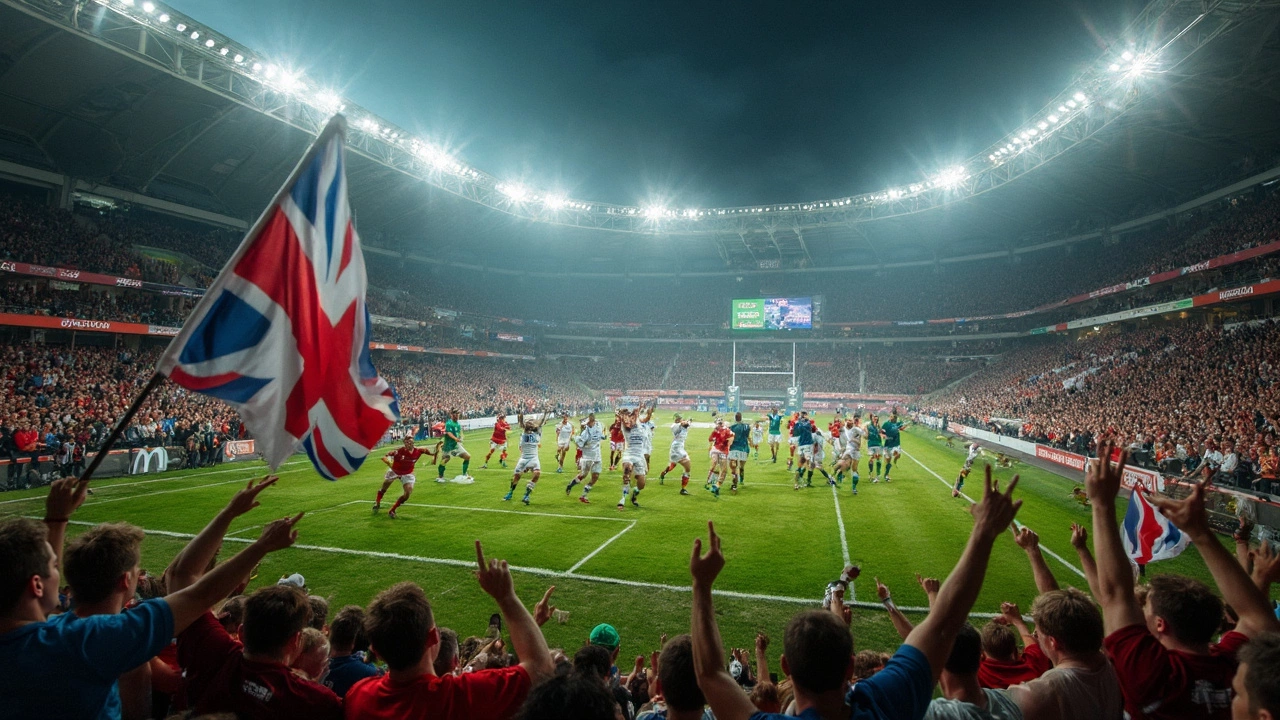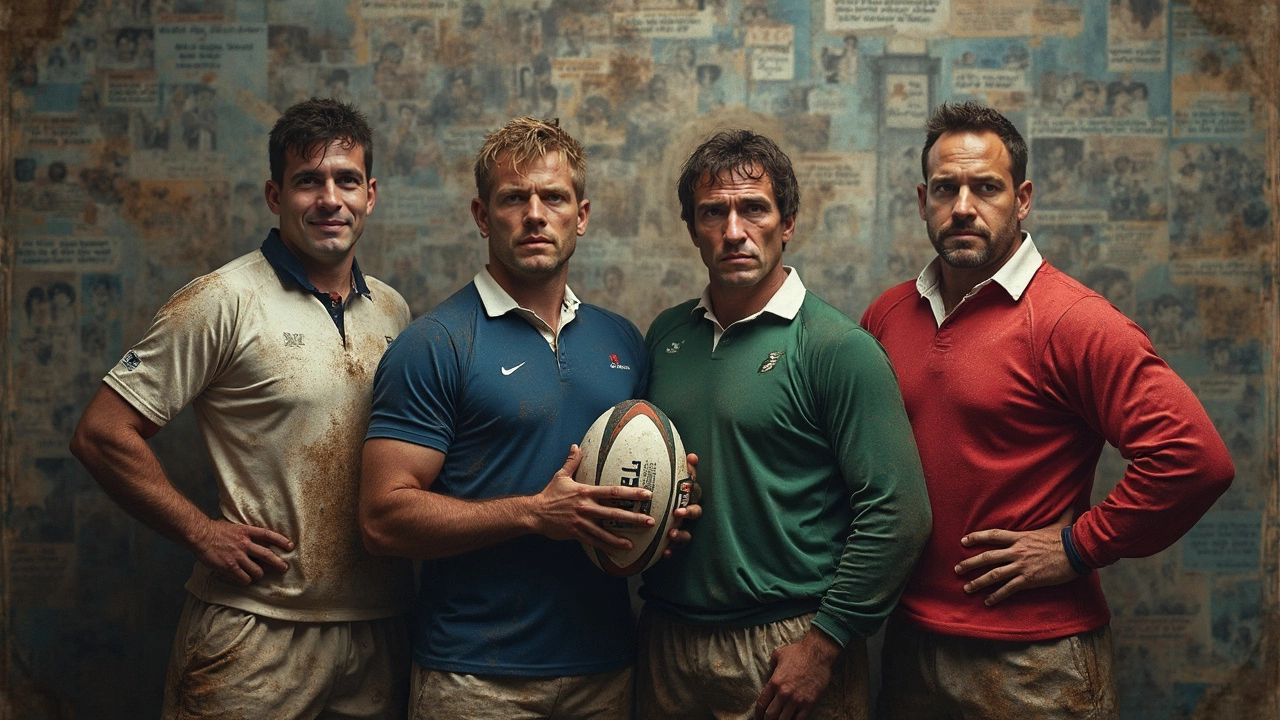
If you hang out with rugby fans, there’s always this heated debate over which country rules the sport. Most people immediately shout New Zealand, but it’s not as simple as pointing at the All Blacks’ famous haka. A few other countries—South Africa, France, Ireland, England, and Australia—have plenty of punch on the field and medals in their cabinets.
When you look at the numbers, New Zealand and South Africa have won the most World Cups. South Africa’s win in 2023 was pure drama—the final against New Zealand kept everyone glued to their screens. But Ireland’s recent climb to the world number one ranking sparked buzz all over, and France is gearing up for a historic era with their young squad, especially after hosting the last Rugby World Cup.
The real answer? Picking who’s "best" in rugby depends on what you care about. Talking world titles, consistency, or just the electric crowds and winning style? These details matter. Travelers even plan trips around big games—catching the Six Nations in Dublin or a Bledisloe Cup match in Eden Park is a bucket list move for rugby nuts.
- The Usual Suspects: Top Rugby Nations
- Why the Best Teams Succeed
- Rivalry and Mind Games: Stories from the Pitch
- How to Catch the World's Biggest Rugby Fixtures
The Usual Suspects: Top Rugby Nations
If you peek at the world of rugby, a handful of countries are always in the mix at the top. When folks argue about the best rugby country, these names come rolling out without fail: New Zealand, South Africa, England, France, Ireland, and Australia. They're not just famous—they've got the titles and winning records to back it up.
New Zealand’s All Blacks are what most people picture when you mention rugby powerhouses. They’ve taken home the Rugby World Cup three times (1987, 2011, 2015). Their pre-game haka gives chills, but it’s the fast, clinical style on the field that leaves lasting marks. Then there’s South Africa’s Springboks, who matched New Zealand’s World Cup count by snagging the trophy in 1995, 2007, 2019, and 2023. The Bokke rely on massive defense and clever strategies—they don’t just bulldoze, they outsmart.
England is Europe’s lone representative in the winner’s circle, lifting the Webb Ellis Cup in 2003 and reaching the final four more times. France never clinched the trophy but finished as runners-up three times, and they always bring flair and unpredictability, which stir up fans and unsettle opponents. Ireland, meanwhile, keeps climbing, recently topping the world rankings and taking down the big names, especially in the Six Nations. Australia’s two World Cups (1991, 1999) aren’t just history—a strong Wallabies squad always has a shot at shaking up the top tier.
Here’s a glimpse at major Rugby World Cup records from these heavyweights:
| Country | World Cup Wins | World Cup Runner-Up | Recent World Ranking (May 2025) |
|---|---|---|---|
| New Zealand | 3 | 2 | 2 |
| South Africa | 4 | 1 | 1 |
| England | 1 | 3 | 5 |
| France | 0 | 3 | 4 |
| Ireland | 0 | 0 | 3 |
| Australia | 2 | 2 | 8 |
Even after all these stats, bragging rights change fast in rugby. A world-class team today can stumble, and a “dark horse” can charge up the rankings the next season. So, keeping an eye on current fixtures and form is the only way to stay ahead in the debate.
Why the Best Teams Succeed
When you look at why countries like New Zealand and South Africa are always at the top, you start to notice a few patterns that go beyond just having talented players. First up is their obsession with rugby from an early age. In New Zealand, kids practically get a rugby ball before they get a bike. Every neighborhood has a club, meaning future stars like Richie McCaw and Beauden Barrett had already racked up years of backyard practice before joining professional teams.
South Africa takes things just as seriously. Their school competitions can draw more buzz than some club games, and it's totally normal to see massive crowds at schoolboy finals. This competitive environment breeds mental toughness, something you see every time the Springboks edge past rivals in tight games.
Another secret sauce: investment in coaching and analysis. Teams like Ireland didn’t just get lucky with their world number one ranking—they use tons of video breakdowns, GPS trackers during training, and customized fitness plans. It’s super high-tech. Coaches are almost like scientists, breaking down every ruck and pass to squeeze out a tiny advantage.
Culture also matters. The All Blacks have a strict “no d***heads” rule (seriously, they call it that) to keep egos in check. The French, on the other hand, harness local flair and unpredictability, which makes them dangerous for anyone. Meanwhile, England’s structured play messes with opponents who aren’t ready for how disciplined they are.
- Kids in top rugby nations start playing as soon as they can walk.
- School and club competitions are fierce and draw massive support.
- Teams invest heavily in data, tech, and recovery science.
- Every country has a unique style and set of values that shapes their play.
Let’s break down how stacked these countries really are when it comes to international trophies:
| Country | World Cup Wins | Recent Major Trophy |
|---|---|---|
| New Zealand | 3 | Rugby Championship 2023 |
| South Africa | 4 | World Cup 2023 |
| England | 1 | Six Nations 2023 Runner-Up |
| France | 0 (finalist twice) | Six Nations 2022 |
| Ireland | 0 | Six Nations Grand Slam 2023 |
It’s tough to ignore how much this attention to detail pays off. If you’re dreaming of your own kid playing elite rugby one day, it’s not just about size or speed—the real difference comes from culture, competition, and the tiny margins the best teams chase down every week.
That’s why the rugby powerhouses aren’t going anywhere soon—they mix talent, culture, and science like nobody else.

Rivalry and Mind Games: Stories from the Pitch
Rugby isn’t just about brute force or speed—some of the wildest moments come from the mental battles and classic rivalries. Ask almost anyone about rugby fixtures, and you’ll hear stories of teams getting inside each other’s heads before they’ve even touched the ball. For decades, these showdowns have made legends out of players and glued fans to the screen.
The showdown between New Zealand and South Africa, for example, isn’t just about trophies. It’s packed with history—a rivalry that goes back to 1921 and swings on things like home advantage or even last-minute penalties. In 1995, South Africa scored a shocking World Cup win over the All Blacks, and Nelson Mandela presenting the trophy to Francois Pienaar became an iconic photo for the whole sport. Fast-forward to 2023, and the Springboks edged out the Kiwis in the tightest Rugby World Cup final ever—just one point separated the teams.
The Northern Hemisphere brings its own fireworks. England and France call it "Le Crunch" for a reason—just think of the 2009 game when France ruined England’s Grand Slam hopes in a single night. And the Six Nations rivalry? Ireland versus England at Dublin’s Aviva Stadium is a crowd frenzy every time. Irish fans will never forget Grand Slam deciders or tight wins in the rain, especially after Ireland finally took down the All Blacks in 2016—their first win ever against New Zealand after 111 years of coming up empty.
Players and coaches use every trick in the book to psych each other out. Dan Carter, New Zealand’s World Cup hero, was famous for staying cool even when the opposition tried to rattle him with trash talk. The Welsh team has rolled out mock haka dances to get inside New Zealand’s heads—sometimes it works, sometimes it riles up the Kiwis to play even harder.
Sometimes these rivalries get downright statistical. Here’s a look at a few iconic head-to-head records from recent history:
| Rivalry | Years | Matches | Wins (Team 1) | Wins (Team 2) |
|---|---|---|---|---|
| New Zealand vs South Africa | 1921-2024 | 106 | 62 (NZ) | 41 (SA) |
| England vs France | 1906-2024 | 111 | 61 (Eng) | 41 (Fra) |
| Ireland vs England | 1875-2024 | 141 | 52 (Ire) | 80 (Eng) |
| Australia vs New Zealand (Bledisloe Cup) | 1932-2024 | 170 | 124 (NZ) | 45 (Aus) |
With stories like these, it’s no surprise that these matches are always circled in thick red marker in the rugby calendar. If you ever get the chance, catching one of these duels live is something you’ll remember forever—just make sure you’re ready for plenty of banter from the fans around you.
How to Catch the World's Biggest Rugby Fixtures
If you want to stay on top of the most hyped rugby games, you’ve got to know when and where they’re happening—and how to actually watch them live without jumping through hoops. Some games have become regular must-see events. The Rugby World Cup finals, the Six Nations (especially that Ireland vs. England showdown), and New Zealand’s battles in the Rugby Championship are usually packed with drama and talent.
The rugby calendar rarely sits still. Major international matches often run from late winter through early summer in the northern hemisphere, while southern hemisphere fans go wild from July to November. Rugby World Cup finals pop up every four years—the last one wrapped up in Paris in October 2023 with a crowd of 80,000 and 9.3 million TV viewers just in France.
- Stream smart: Broadcasters like ITV (UK), Stan Sport (Australia), SuperSport (South Africa), and NBC Sports (US) cover most major matches. World Rugby often streams games or highlights directly. Loads of fans are jumping onto live apps and VPNs to bypass blackout rules and watch from anywhere.
- Tickets: For live stadium action, World Rugby and national team sites are your go-to. Registering for early alerts helps, especially for hot tickets like World Cup knockout games or rivals clashing in Cardiff or Johannesburg.
- Plan ahead: Games sell out quickly. For example, the Ireland vs. New Zealand quarterfinal in Paris in 2023 broke ticket sale records, being gone within hours of release.
- Stay updated: Follow the teams and tournament pages on social media for lineup news, fixture dates, and last-minute broadcast changes. Twitter and Instagram are packed with up-to-the-minute rugby updates.
Here’s a quick look at the biggest yearly fixtures and where you can usually watch them:
| Event | Usual Dates | Main Broadcasters |
|---|---|---|
| Six Nations | Feb - Mar | ITV, BBC (UK), Virgin Media (Ireland) |
| Rugby Championship | July - Sept | Stan Sport (AUS), Sky Sport (NZ), SuperSport (SA) |
| Rugby World Cup | Every 4 years, Sept - Oct | ITV (UK), Bein Sports, NBC (US) |
| Autumn Internationals | Nov | Amazon Prime (UK), local channels |
Most importantly, double-check kickoff times. With time zones all over the place, it’s painfully easy to miss a classic clash by an hour or more. I set reminders on my phone for any game Harvey begs to watch together, just to keep our rugby tradition alive and kicking.